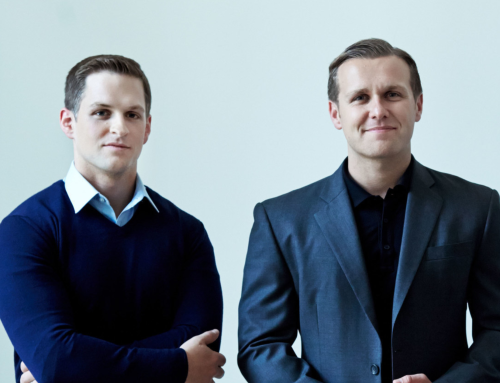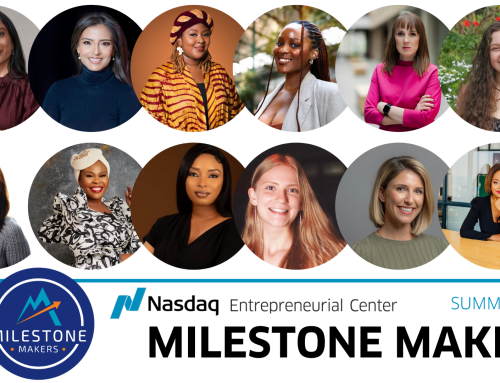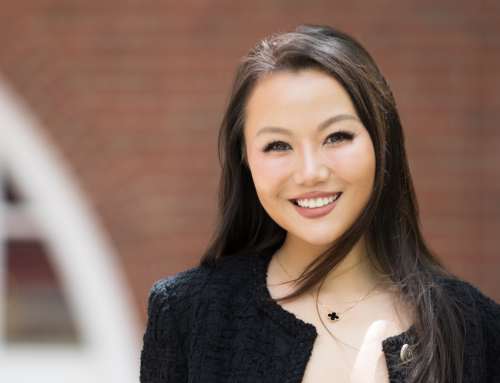Founded in 2017, Beam is a startup that’s building the world’s most advanced suspicious activity reporting and transaction monitoring platform. Ben Duranske is its co-founder and he took a moment to update the Nasdaq Entrepreneurial Center on his journey as a founder so far.
What does “entrepreneurship” mean to you?
BD: People tend to focus on the economics of entrepreneurship almost to the exclusion of everything else, and that’s a mistake. A classic definition is that it’s basically organizing and running a business, evaluating and taking risks, and making decisions about products and people. What that definition misses is the reason that just about anyone who calls themselves an “entrepreneur” really does it – because you get to break rules to find better paths.
So what it means to me, personally, is having the freedom to throw all the conventional wisdom out the window and do something important in a whole new way. The business stuff follows, but it’s not the driver.
Describe the a-ha moment that lead to Beam’s conception.
BD: I was really honored and lucky to get to work at Facebook during a fairly early time at that company, and then with a bunch of other notable tech companies as a consultant for a couple of years afterward. My amazing co-founder, Beam’s Chief Technical Officer Andreas Bayer, had a similar opportunity at Xoom, and then at PayPal.
What we both kept seeing over and over was that there was no good solution for a really tough problem – keeping the financial system safe from criminals and bad guys. Ideally, by instantly detecting when they try to use the system, and even better, by doing that without a stupidly large amount of human review.
Giant banks had a legacy solution that they sort of grudgingly accepted and they employed thousands of analysts to sift through data, but that model was an awful fit for nimble fintechs like the companies we were working at. Beam was born to solve that problem.
What is the biggest experience or lesson gained on your journey so far?
BD: To trust completely in our shared vision for Beam, and personally, to trust completely in myself. Especially if you’re a first-time founder, you’re going to be getting an enormous amount of advice from everyone around you. While you definitely want to listen to people who have been there before on things you don’t know yet, nobody knows your product or industry better than you do. Trust your vision, and trust that you and your co-founding team know that vision better than anyone else.
How is your company changing the landscape?
BD: We’re creating a faster, more efficient, and vastly easier to use set of tools so innovative financial services companies can catch more bad things – really bad stuff like human trafficking, money laundering, and terrorist financing.
What do you wish you knew when you started? Is there anything you would do differently?
BD: I wish I had known how important it is to be utterly ruthless about prioritization. Especially during the early years of a startup, you’re pulled a thousand different directions. You have to learn to say “no” a lot. That’s not a skill you’re likely to have picked up if you’re a first-time founder, because you succeeded in everything else you’ve ever done by saying “yes.” But if you say “yes” even a little bit too often as a founder, you’ll never get to do the really important things.
What advice/credo do you live by as you grow the business / what is your professional and personal mission statement?
BD: Integrity in all things, personal and professional, is absolutely critical to happiness and success. When you get that right, the rest kind of falls into place.
What’s it like to work alone or with your partners? What advice do you have for fellow entrepreneurs about building and leading teams?
BD: I know it’s trite, but top talent hires top talent. Don’t convince yourself that the wrong person is right just because that person is available. And if you do screw that up, fix it, even if that’s painful.
I like to hire people who know how to say “I don’t know.” You want them to follow that up with, “…but I’ll find out” but it’s the “I don’t know” that really matters. And build a team of people who are way better at their jobs than you would ever be at them. That’ll give you time to spend on the things you’re really good at.
Where do you find inspiration when faced with challenges?
BD: The team at Beam is the reason that this company exists. We all inspire each other with our shared passion for our project.
That and a good dose of doing nothing. I am not kidding. As Winnie the Pooh says, “People say that nothing is impossible, but I do nothing every day.” Got an impossible challenge? Sit down, eat a little honey, have a chat with Piglet, and give it some space. Moving fast is important, but it can also easily lead to really bad decisions. And it prevents your subconscious from sorting things out. Doing nothing, even for a few minutes, can be truly inspirational.
What is your proudest and darkest moment so far?
BD: They’re two sides of the same coin, and I don’t think they’ll surprise anyone else who has founded a company.
Proudest? While every addition to the team is a huge boost to the company, getting together with Beam co-founder Andreas a year ago was definitely my proudest moment as a founder.
Darkest? The flipside. Losing any employee for any reason, ever. If you’re doing it right, your team is like family.
What lesson did 2018 have for you? What do you look forward to in 2019?
BD: 2018 was crazy, since we went from zero to 100 in a really short time. It taught me to say “no” more often, be patient, and like I said above, to do nothing now and then. While we’re not announcing anything yet, I can say that I’m looking forward to a lot of growth at Beam in 2019 in all areas – team, customers, and product. And I’m looking forward to a little bit more room to work on the company’s vision, because we’ll be adding people who are smart specialists in their areas now and I’ll be able to focus on my core role to a greater degree.
Many entrepreneurs continue to perfect their daily routines to support their work and greater vision; would you mind sharing your morning routine or a regular ritual that grounds your work each day?
BD: I’m a lousy example on this, because my morning routine is 100% work from pretty much right when I open my eyes. I’m up and out of my house really early, take East Coast calls on my drive to a BART stop, and then triage email on the train up to San Francisco. But there’s a reason for that. Two reasons, actually – my daughters, ages 8 and 10. I set it up this way so I can spend most evenings with them.
It’s really important to both me and Andreas that Beam be a workplace where people feel comfortable putting down their phones sometimes. That’s hard at a startup. No matter what, there will be weeks where you’re putting in two or three times a typical work week because you have to. So where I can and when I can, I’m leading by example.
We encourage everyone at Beam to find a way to build non-work-time into their personal schedules – for family, for friends, or for whatever is important to them. My early work schedule is just how I personally make that work.
What kind of an entrepreneur do you want to be known as, as in, what do you want your legacy to be?
BD: Like every founder, I want to be remembered for what we built and the outcome we achieved, but I also want to be remembered for how we built it and how we achieved that outcome. This isn’t particularly selfless; I’m convinced that companies fail when they put short term monetary success ahead of culture, ethics and vision, and that long-term meaningful value is created when those remain in sharp focus as a company grows.




Invite a Friend
Close